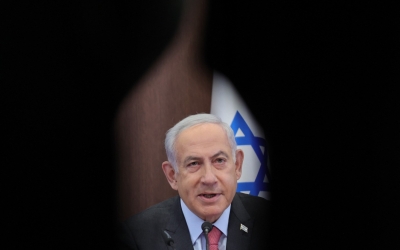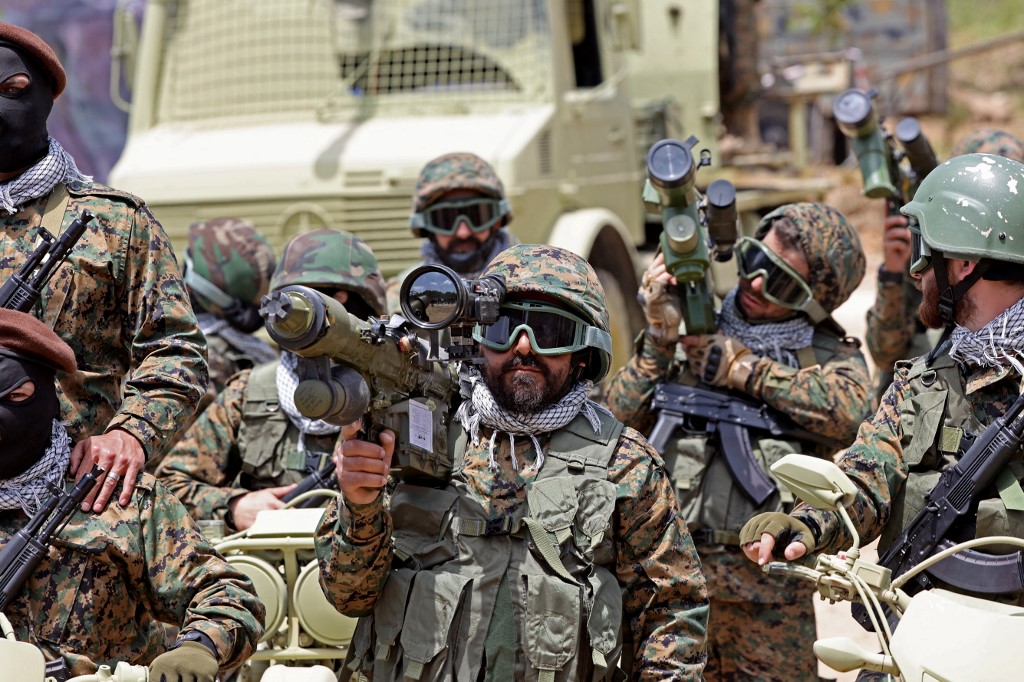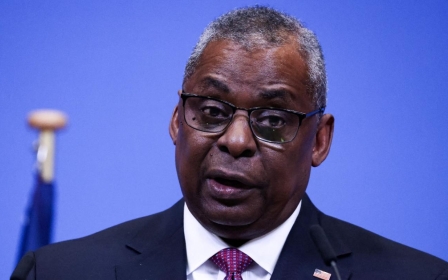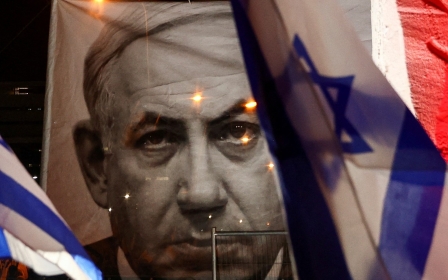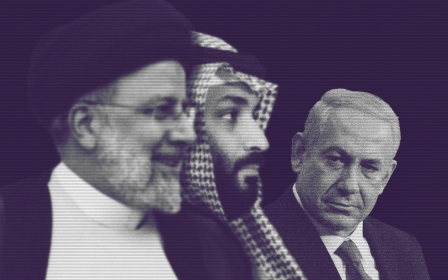Israel: How leaders threaten war on Iran to resolve internal crisis
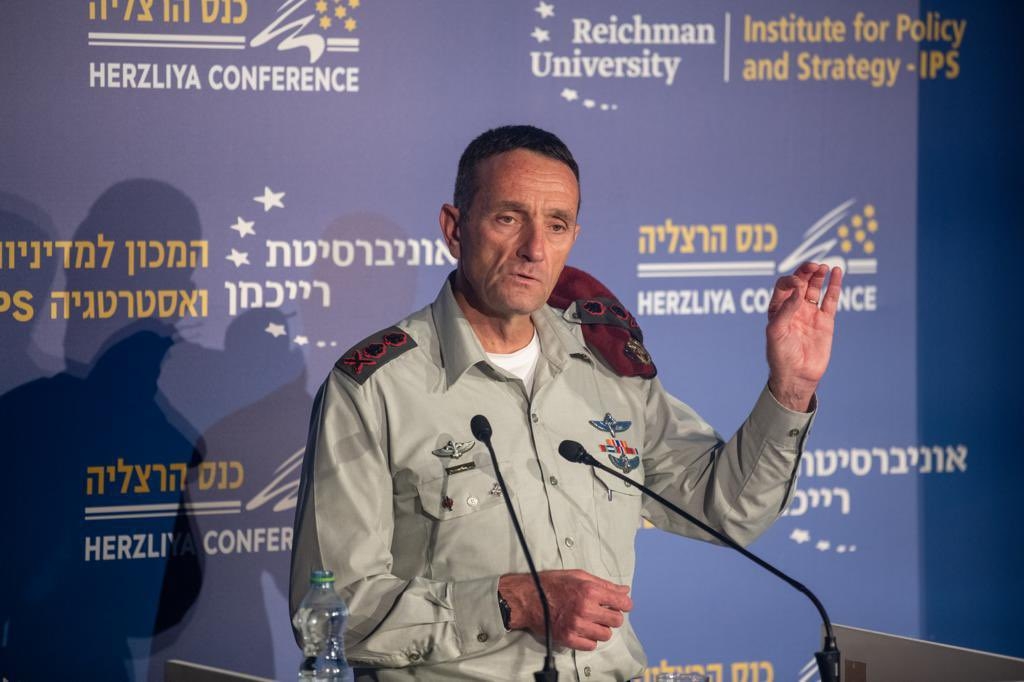
Last week's Herzliya Conference, held at Israel's Reichman University, served as a stage to amplify military threats against regional targets including Lebanon and Iran. According to the chief of staff of the Israeli forces, Herzl Halevi, attacks from "air, sea, and land" are all on the table.
Speaking at the conference, Halevi reflected on the possibility of an Israeli pre-emptive strike: "Negative developments might necessitate action against Iran. The timing of a pre-emptive [military] strike against Hezbollah that would ensure our advantage should be examined...[Hassan] Nasrallah dares to confront us, but post-war recovery would be extremely challenging for Lebanon".
The conference, which took place on 22-23 May, coincided with site visits to strategic military bases by Prime Minister Benjamin Netanyahu and Minister of Security Itamar Ben-Gvir, who recently echoed these sentiments in their public statements.
This year's theme of the annual security conference was "Visions and Strategy in an Era of Uncertainty", based on the premise of the Jewish state allegedly being on the brink of a disastrous regional war. In this context, a cascade of escalated and explicit threats was made by the country's military and governmental leaders against Iran, Hezbollah, Syria, and Lebanon.
Interestingly, these developments and security threats seemed to have stirred more interest in regional and global media outlets than within Israel.
'Preparing' for war
Defence Minister Yoav Gallant proclaimed at the conference that Israel is preparing for what he described as a "difficult, complex, and multi-front war". He accused the Iranian Revolutionary Guard of "transforming civilian commercial vessels into military bases, drone carriers, and seaborne terrorist bases in the Middle East".
Interestingly, these threats seemed to have stirred more interest foreign media outlets than within Israel
Gallant added: "These maritime terrorist platforms represent an extension of Iran's maritime terrorism spanning the Persian Gulf and the Arabian Sea, with ambitions to extend its reach to the Indian Ocean, the Red Sea, and potentially even the Mediterranean Sea".
Gallant offered a "solution": "Only international cooperation and the establishment of a coalition against Iranian terrorism in the Gulf, along with providing a real military threat against each front, will lead to the most effective confrontation with Iranian terrorism, whether in the air, sea, or land".
Meanwhile, the head of the Military Intelligence Directorate, General Aharon Haliva, warned: "Nasrallah is on the verge of a misstep that might plunge the region into a significant war". He highlighted a recent incident involving a Hezbollah fighter who breached the Israeli border and planted an explosive device near Megiddo Junction, deep inside the country's interior - dismissing it as neither incidental nor unique.
Haliva underscored that Iran continues to advance its nuclear ambitions, making progress in its uranium enrichment. He stated: "Our assessments indicate that Iran has yet to make a definitive decision to obtain nuclear weapons. Israel remains vigilant, monitoring all such shifts closely".
Haliva further posited that Syria's re-entry into the Arab League, along with the warming of relations and President Bashar al-Assad's visit to Saudi Arabia, suggests an upswing in Syrian morale and self-assuredness, potentially escalating the challenge Syria poses to Israel.
In an apparent contradiction, the heightened rhetoric threatening imminent pre-emptive war contrasts sharply with the nature of pre-emptive warfare itself, which traditionally hinges on elements of deception and surprise.
The one-sided perception that Hezbollah has been deterred since 2006, coupled with assertions at the Herzliya Conference that it is now more emboldened in confronting Israel, neglects a key point - that Israel itself could have been deterred. Deterrence, indeed, is a two-way street. This notion was, in fact, illustrated by the recent resolution of the gas crisis in the Eastern Mediterranean, as well as by the missile barrage that Israel endured from southern Lebanon just weeks ago.
A standoff took place between Lebanese soldiers and Israeli soldiers at the Lebanon-Israel border near the Lebanese town of Ayta ash Shab on Sunday, amid claims that members of the Israeli army breached the “Blue Line” between the countries pic.twitter.com/RVXfD9i25y
— Middle East Eye (@MiddleEastEye) March 7, 2023
Several military analysts contend that Netanyahu's tenure as prime minister for the majority of the last decade, particularly his efforts to undermine the Iran nuclear deal until its eventual abandonment by the Trump administration, may have inadvertently posed a strategic risk to Israel.
This assertion stems from the observation that the pace of uranium enrichment and the development of long-range missiles in Iran both accelerated, following the US withdrawal from the agreement. They further argue that any act of aggression against Iran could potentially spur its leadership to expedite the completion of its military nuclear project, a course of action that stands in stark contrast to Israeli strategic interests.
Political motivations
Israeli political analyst Ronel Alfer and military analyst Amir Oren in Haaretz contend that the posture adopted by military leadership, security institutions, and the current government is primarily intended for Israeli public opinion. In the analysts' view, threatening war has become somewhat of a cliche, though it effectively prevents potential military insubordination among pilots.
They further argue that this climate of heightened alert aids Netanyahu in his objective of sidelining political rivals such as Ben-Gvir and the Otzma Yehudit (Jewish Power) party and pulling opposition leader Benny Gantz into an emergency coalition government. They further speculate that Gantz's incorporation into the government might secure approval from the Biden administration.
Alfer further raises the possibility of Israel jeopardising its own security in an attempt to derail "judicial reform" efforts and navigate its ongoing internal crisis. This, he implies, could result in a conflict motivated by internal political objectives.
Following his attacks on Gaza, Netanyahu has managed to reclaim some of his lost popularity and stature, but this rebound is notably limited and hasn't altered the prevailing direction of Israeli domestic politics.
The Israeli populace is currently more engrossed with the state of the economy, escalating costs and apprehension of economic collapse, rather than with matters concerning Iran. The economic strain has been further exacerbated as the spectre of war has directly led to a marked depreciation of the Israeli shekel against foreign currencies, portending additional price hikes and financial inflation.
Additionally, the unfolding events coincide with the ratification of a two-year state budget during which Netanyahu has conspicuously bowed to the demands of his coalition partners, namely, the religious Zionists and the Haredim.
Lacking ability
Though the issue remains shrouded in uncertainty and scepticism, another key question is whether Israel is prepared for a well-calculated war against both Hezbollah and Iran. Several analysts have concluded that Israel, despite boasting formidable military capabilities and advanced prowess in the utilisation of artificial intelligence for military objectives, may lack the ability to fully dictate the outcome, trajectory, and scope of such a war.
Equally murky is the capacity of Israel's home front to endure a war of nearly total scale.
As per the statements from the Israeli chief of staff, the threat of Hezbollah has been effectively managed since 2006. However, the same timeframe also illustrates Israel's similar stance on deterrence. For all these years, the northern border has notably remained one of the most peaceful confrontation lines.
Furthermore, the agreement outlining the demarcation of maritime borders between Lebanon and Israel, specifically pertaining to gas exploration, serves as evidence of this dual political and military deterrence at play. Adding to this complex tableau are recent statements from the Israeli general staff. Following the latest aggression against Gaza, Israeli authorities clarified that assessments appropriate for evaluating the attacks on Islamic Jihad are not applicable to the northern front, where Hezbollah operates.
This statement comes in the wake of the Herzliya Conference proceedings, where, according to Israeli assessments, Hezbollah was characterised as Iran's most formidable front.
If the objective of these threats is to rejuvenate Israel's deterrence capability, it would align with Netanyahu's assertion of Israel's superiority in both "human and artificial intelligence". This latter part pertains to military operations, cyber capabilities, and the "swaying of public opinion and the adversary's morale".
However, Iran and Hezbollah see Netanyahu's government as a factor that has strategically debilitated Israel, an effect mirrored in its dwindling regional clout. To them, the current leadership provides greater opportunity than risk. Apparently backtracking from the threats, a spokesperson for the Israeli army told foreign media on 24 May that the warnings issued by the country's political and military leadership "do not signify that war is on the horizon, nor that Israel will imminently strike Iran."
Shifting alliances
In a shifting regional landscape, nascent signs of Arab-Arab and Arab-Iranian reconciliation are emerging. At the same time, Israel and the US maintain that Iran is assisting Russia by supplying drones and missiles in the Russia-Ukraine conflict.
Ultimately, Israeli leaders' escalating threats are unlikely to precipitate a full-scale war
This Iranian alignment with Russia and China, as perceived by Netanyahu, could trigger US interest in a potential strike on Iran, halt the progressing Saudi-Iranian and Gulf-Syrian detente, and limit Arab efforts to establish a new global order rooted in multipolarity instead of a unipolar configuration.
Israeli analyses suggest that through threats of regional war, Netanyahu may expedite US pressure on Saudi Arabia to normalise diplomatic relations with Israel. This effort currently includes limited short-term measures such as facilitating direct flights between Israel and Saudi Arabia carrying Hajj pilgrims among 1948 Palestinians.
It is increasingly doubtful that Israel's orchestrated war of threats will escalate into a full-fledged war, a venture which poses risks far beyond any capability to predict its consequences - potentially devastating for not just Lebanon, but Israel itself.
The recent Israeli assault on Gaza, specifically aimed at the comparatively small and limited-capacity Islamic Jihad movement, underscored Israel's inability to effectively control the progression of the offensive or dictate its conclusion. As Halevi stated, the situation on the northern front is entirely different to Gaza, and the same strategies cannot be employed.
In light of these conditions, there seems to have been a significant and palpable decline in Israel's regional influence. It is also highly unlikely that Israeli leaders will succeed in reshaping American global priorities to benefit their own political agenda. Also, the "threat war", repeated since 2004 and particularly in 2013 and 2014 before the international agreement on Iran's nuclear programme was reached, has become ineffective.
The aims of this rhetoric are focused on short-term gains rather than any long-term strategy. The current "threat war" has revealed the depth of Israel's economic and financial crisis resulting from the judicial coup undertaken by the current government.
While some wars may have bolstered the Israeli economy in the past, they have now become disastrous for the economy, which currently commands more attention from Israeli society than any other issue. This indicates that the internal Israeli political crisis, the judicial coup, and its results are what caused the erosion of Israeli deterrence, in parallel with the previously mentioned regional and global transformations.
Ultimately, Israeli leaders' escalating threats are unlikely to precipitate a full-scale war. And though American diplomatic manoeuvres may foster a level of detente between Israel and Saudi Arabia, the prospect of formal diplomatic relations remains uncertain.
The views expressed in this article belong to the author and do not necessarily reflect the editorial policy of Middle East Eye.
Middle East Eye propose une couverture et une analyse indépendantes et incomparables du Moyen-Orient, de l’Afrique du Nord et d’autres régions du monde. Pour en savoir plus sur la reprise de ce contenu et les frais qui s’appliquent, veuillez remplir ce formulaire [en anglais]. Pour en savoir plus sur MEE, cliquez ici [en anglais].



